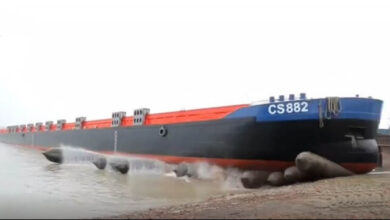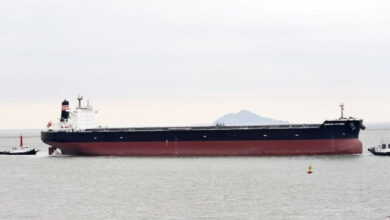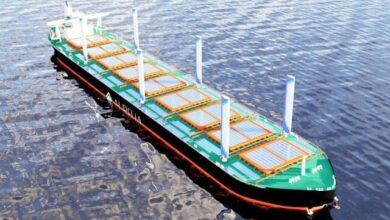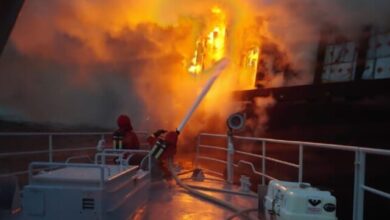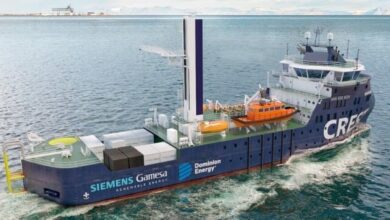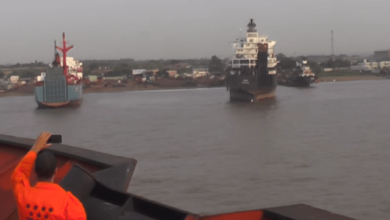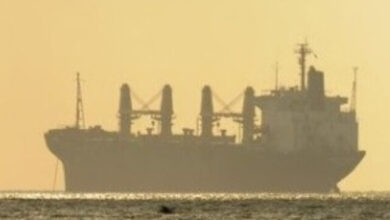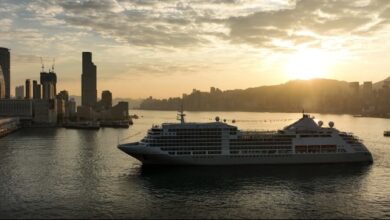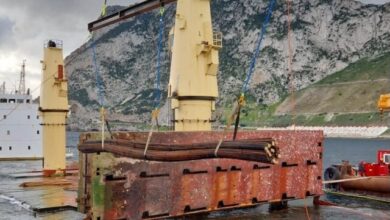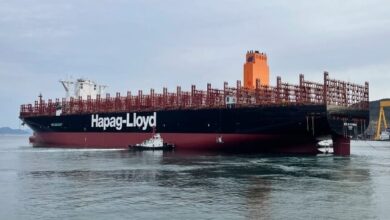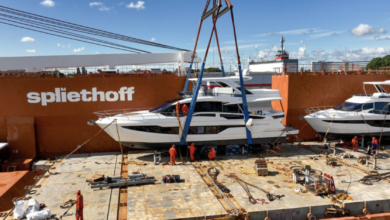IPCSA: Many problems shared, many friendships made

A problem shared is a problem halved, says the proverb. That’s certainly the case for members of the International Port Community Systems Association (IPCSA). As well as sharing problems, they are happy to share their knowledge and experience, and to work together in resolving issues and raising the profile of Port Community Systems. Members also talk enthusiastically about being part of the ‘IPCSA family’.
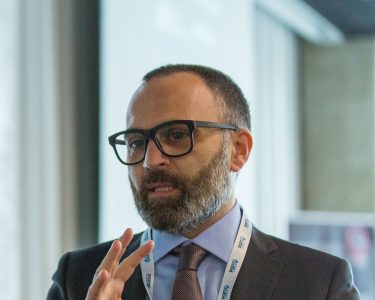 When it comes to the benefits of IPCSA membership, Ivano di Santo, CIO at the Port of Trieste, says he has a ‘very human’ view.
When it comes to the benefits of IPCSA membership, Ivano di Santo, CIO at the Port of Trieste, says he has a ‘very human’ view.
“In a port, as in many other organisations, we ‘IT people’ can often feel a little bit outside the general interaction. IT is not totally understood, and we can feel a little alone inside our organisations,” he says. “The approach, interaction and contact we have with each other through IPCSA is so useful, because we are not alone!”
He explains: “All of the IPCSA members have similar problems, albeit in different conditions. For example, some port authorities are public entities, with rules appropriate to that, while others are privately owned, with a business approach. But digitalisation, management of the port community, interaction with Customs, harbourmaster and other actors, is the same for all.”
IPCSA members can focus on and discuss very specific problems because the processes are the same, says Ivano. “We can concentrate solely on the single process, the single problem, without being influenced by the business or political characteristics of a wider organisation it belongs to. IPCSA is a booster, an accelerator; we can study a problem together and find the solution.”
One of IPCSA’s best characteristics is its major expertise in Port Community Systems and standardisation of processes, he says. That gives the association strength in lobbying on behalf of members, whether at the European Union, World Trade Organization, World Customs Organization or elsewhere.
As a neutral organisation, IPCSA is also able to enter into direct contact with other interested groups on behalf of all members, securing global agreements and solutions that benefit all members.
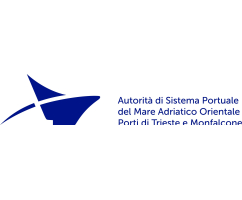 The Port of Trieste joined IPCSA in November 2017. Membership was an instant advantage in supporting Trieste’s drive for digitalisation. “When I joined the port in 2011, there was no digitalisation,” explains Ivano. “We embarked on our first PCS project in 2013, with the aim of developing an open-source system which could be taken up by other port authorities in Italy. When our PCS became operational on 1 January 2014, we had 100 users – now we have reached 1,000.”
The Port of Trieste joined IPCSA in November 2017. Membership was an instant advantage in supporting Trieste’s drive for digitalisation. “When I joined the port in 2011, there was no digitalisation,” explains Ivano. “We embarked on our first PCS project in 2013, with the aim of developing an open-source system which could be taken up by other port authorities in Italy. When our PCS became operational on 1 January 2014, we had 100 users – now we have reached 1,000.”
Port Community Systems can play an important ‘buffer’ role between EU and non-EU trading partners, which is particularly important for Trieste in its high level of trade with Turkey, says Ivano. “We have presented the buffer area concept in IPCSA. I believe that we members should help each other with analysis and best practice ideas – let’s not start from zero, but from 4 or 5!”
To illustrate the breadth of expertise in IPCSA, another important activity for Trieste has been joint work on the digitalisation of train composition.
“For us, it is very important to be a member of IPCSA because the association’s goal is separate to any economic and finance targets that a port would generally have. IPCSA works to solve issues and create the conditions to have only one language, one process interpretation, one solution. Other organisations have a political approach or interpretation to the problems – IPCSA is neutral, is not seeking to make a profit and focuses solely on the IT challenges and technical solutions.”
What would Ivano say to a potential new member thinking of joining IPCSA? He says he would welcome all new members, including competitor ports. “That’s because we all have the same problems. It is possible in the ‘IPCSA room’ to meet and discuss those problems, free from any commercial battle.
“I have found new friends. When I think of these people, I don’t think of them as a colleague or an IPCSA member – I think of them as friends. That is due to IPCSA’s ‘family’ feeling. Through IPCSA, I am able to sit around a table with friends from around the world and discuss everyday problems and different approaches, all based on personal experience.”
Port Community Systems have far more to gain from working together, openly, than competing with each other, he believes. “The opportunity of IPCSA is to find the universal language to communicate. Standardisation is one of the most valuable IPCSA activities.”
Ivano has played a proactive part in the IPCSA Blockchain Bill of Lading initiative and is convinced that this concept must be further developed. “The Blockchain Bill of Lading is a very important initiative for us. My view is, if we want to be the port of the future, we need to change our approach now – and this is a perfect example.”
Some countries are ahead of others in terms of digitalisation, but it is important to understand the total picture and vision, says Ivano. “At Trieste, we came late to digitalisation. We want to make sure we don’t make mistakes as we move forward – and we are helped in that through the opportunity to observe the entire world around the Port Community System. We are fortunate to be able to benefit from the lessons already learned by others. Ports tend to have a restricted vision, focusing on their own traffic and business. Thanks to IPCSA, I have a wider vision to the whole world!”


